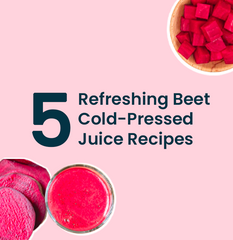How to Cure PCOS | All About Polycystic Ovary Syndrome
Aug 24, 2022 - Fareed Ahmad
PCOS is a common health issue in women caused by hormonal imbalance. Almost 15% of women aged 24–50 are often diagnosed with this syndrome, which causes irregular menstrual periods, infertility, and physical and mental health issues.
In this blog, we will learn in-depth about PCOS effects, various reasons that contribute to this syndrome, and multiple prescribed ways to cure it.
What Is PCOS?
PCOS stands for polycystic ovary syndrome. But the word 'polycystic' in PCOS does not necessarily mean having multiple 'cysts' on the ovary. This syndrome is caused by hormonal imbalance, resulting in excess secretion of male hormones called androgens from the ovary. This creates an imbalance in the reproductive hormone production, which in turn makes the menstrual cycle in a woman's body irregular.
Missing periods, changeable and unpredictable menstrual cycles, unnatural ovulation conditions, and infertility make PCOS in women harder to bear.
Most women in their late 20s to 50s suffer from PCOS and associated mental health issues due to this syndrome. PCOS can even cause long-term health problems like diabetes and heart disease.
Causes of PCOS
Doctors are still unsure about what causes PCOS. But after analysing some common conditions in PCOS patients, these are some mainly observed causes:
1. Excess androgen production:
In PCOS, the ovaries release a high amount of androgen hormones, which causes a hormonal imbalance, leading to a significant health issue in women.
2. Resistance to insulin:
Insulin helps transfer glucose from the blood to the cells and break it down to release the energy required for the cells to perform.
In PCOS, the body's cells become resistant to insulin and demand more to compensate. As a result, insulin is produced in excess, which also results in increased testosterone production.
3. Genetics:
PCOS is often inherited from parents or relatives. Common PCOS genes are transferred to the young ones of the family, giving them this genetic condition.
4. Hormonal imbalance:
PCOS can also be caused by the combined imbalance of multiple reproductive hormones other than testosterone, such as:
5. Increased LH hormone:
Excess luteinising hormone (LH) causes abnormalities in the ovaries.
6. Excess prolactin formation:
Prolactin helps milk production during and after pregnancy. Excessive production of this hormone creates disproportionate hormone levels.
7. Low-grade inflammation:
Chronic low-grade inflammation, i.e., the formation of white blood vessels to fight against infection, has been linked to the development of PCOS. This causes problems in the blood and heart vessels.
Symptoms of PCOS

Some of the notable joint PCOS symptoms include:
1. Irregular period and pregnancy difficulties
Women with PCOS often suffer from irregular periods, excessive blood flow during their periods, and prolonged menstrual cycles. In the long run, these lead to failed ovulation and pregnancy difficulties. Mental health issues & depression
Due to various physical changes, most PCOS patients suffer from mental health issues, leading to depression, anxiety, and mood swings.
2. Weight gain
About 80% of the patients suffer from PCOS and obesity. In turn, PCOS, obesity, and difficulty losing weight affect the patients' mental health.
Ways to Cure PCOS
Some of the treatment processes for PCOS include:
Lifestyle changes:
Doctors prefer to start the treatment by taking a brief of the patient's daily routine and food habits and analysing their lifestyles accordingly. The process focuses on:
Weight loss:
A weight loss of up to 5–10% can significantly reverse PCOS. At least 30 minutes of exercise three days a week or enrolling in a gym often helps in this case. This helps in regulating the menstrual cycle by: i) Lowering insulin level
- Decreasing the risk of heart disease and diabetes
- Balancing cholesterol levels
Following a low-carbohydrate diet:
Doctors or dieticians suggest a diet plan based on low carbohydrate consumption, which helps with weight loss and lowers insulin levels. The diet would consist of measures like the following. i) Refined carbohydrates like white bread, pastries, and sugary beverages like energy drinks and sodas must be avoided.
- ii) Various processed meat such as luncheon meat and hotdogs, and solid fats like margarine, and lard, should be eliminated from the diet. iii) Some excessive intake of red meat, such as those in steaks and hamburgers, should be avoided to decrease PCOS issues in the long run.
-
iv) Eating more vegetables, fruits, and whole grains is vital in regulating the menstrual cycle.
Activeness:
Studies depict that the more patients get active in their daily life, the more their chances of regaining their normal physical and mental state. Being active refers to performing more physical actions—for example, taking a staircase instead of a lift, setting a step goal on a pedometer and walking accordingly.
Maintaining a strict diet chart:
A PCOS-friendly diet chart will account for providing 1800–2000 kcal energy per day. High-fat foods should be avoided.
- Patients must avoid foods with a high GI, such as white potatoes, white rice, rice cakes, muffins, and cakes, to control insulin levels.
- Saturated, hydrogenated, and trans fats should always be avoided. Red meat and dairy products contain saturated fats, which can increase estrogen production and cause weight gain.
- Patients suffering from PCOS should take no medications without a doctor's prescription. Doctors will analyse the patient's condition closely, scrutinise PCOS ultrasound test reports, and often recommend:
Birth control pills:
A combination of birth control pills regulates the production of sexual hormones.
Clomiphene:
This anti-estrogen medication helps regulate ovulation.
Metformin:
This enhances insulin resistance and is often used as an add-on to clomiphene. It also helps in lowering high cholesterol and curing heart disease.
Letrozole:
It stimulates the ovaries to accelerate the ovulation process.
Food Habits to Help Manage PCOS:
PCOS tips and home remedies patients can follow easily are:
- Get more fruit juice. Juices of red fruits like red grapes, blueberries, blackberries and cherries, if taken regularly, can help minimize PCOS issues. The Cold Press Juicer is a boon for some at-home self-care without hassle.
- Include eggs in the daily diet. The IQ Egg Boiler can help women follow this routine with ease.
- Grilled vegetables and meat are necessary for maintaining nutrition levels. The Nutri-Wave 6-in-1 Air fryer cum Oven can grill them optimally with ease.
- Dried beans, lentils, and other legumes must be eaten.
- High fats are prohibited, but women can have healthy fats like olive oil and coconuts.
- Nuts like almonds, pinenuts, and walnuts can be eaten regularly.
- People with PCOS can also eat broccoli, cauliflower, and fatty fish like salmon and mackerel. The highly effective Power Mixer Blender helps blend all these diet foods in one go without decreasing the nutrients’ effectiveness.

 Get extra 5% Off by using code HESTIA5
. on your order
Get extra 5% Off by using code HESTIA5
. on your order
 No Cost EMI : Avail No Cost EMI with Razorpay for orders above ₹2990.
No Cost EMI : Avail No Cost EMI with Razorpay for orders above ₹2990.










